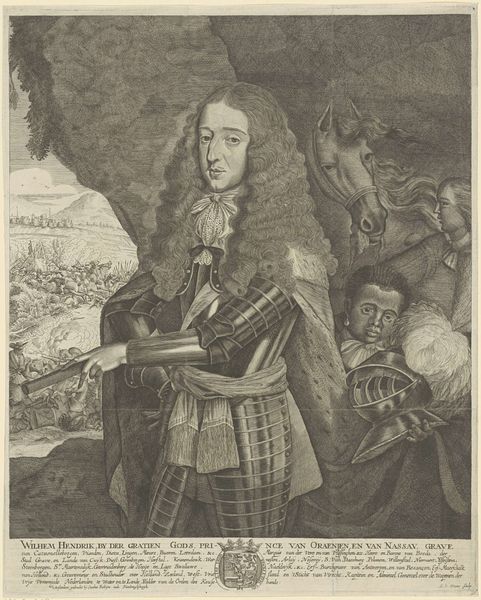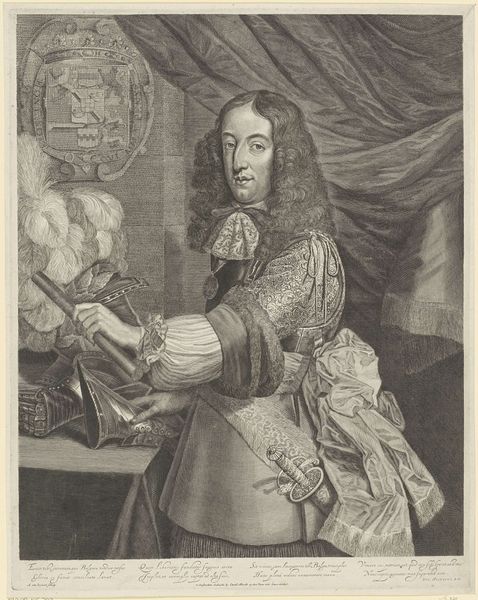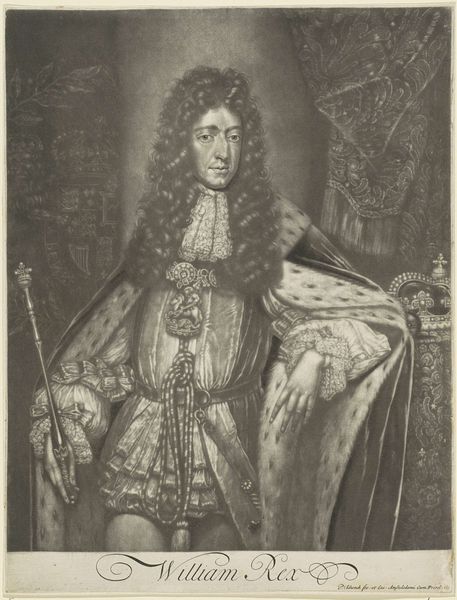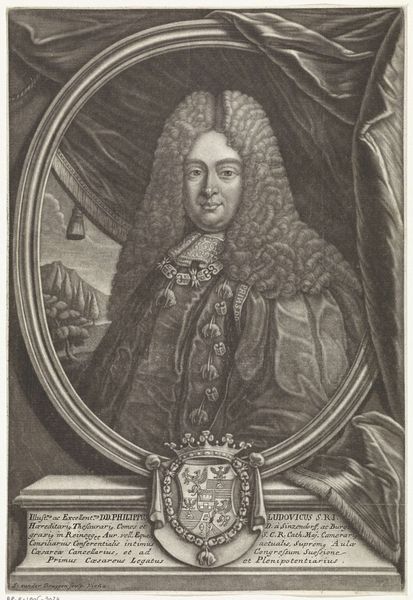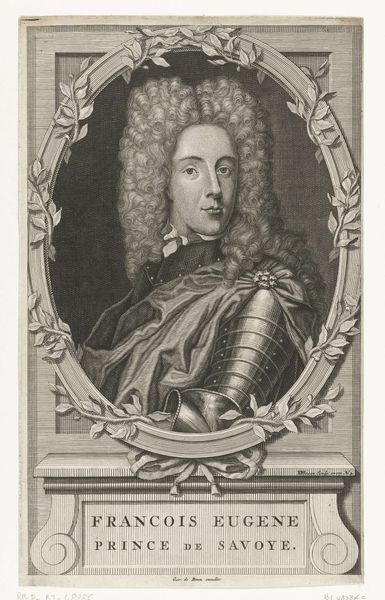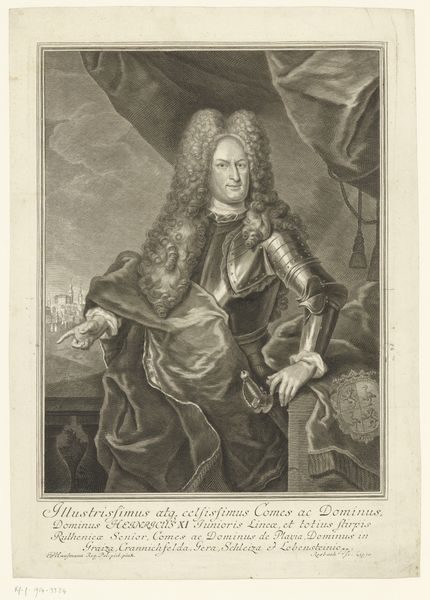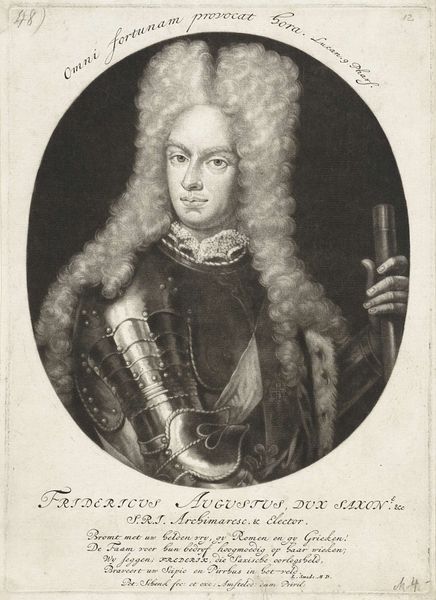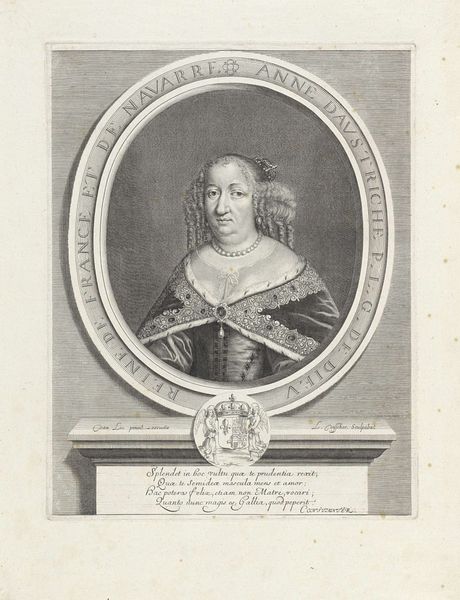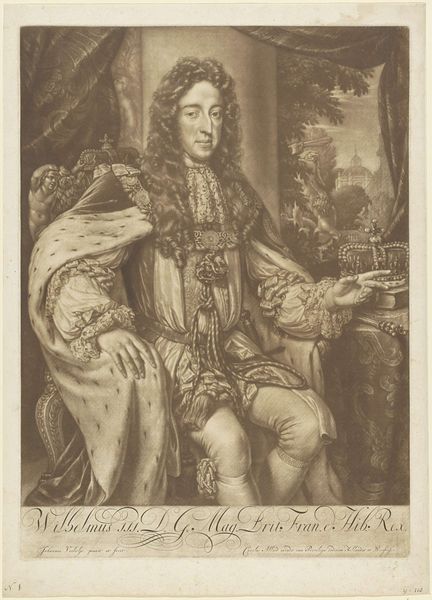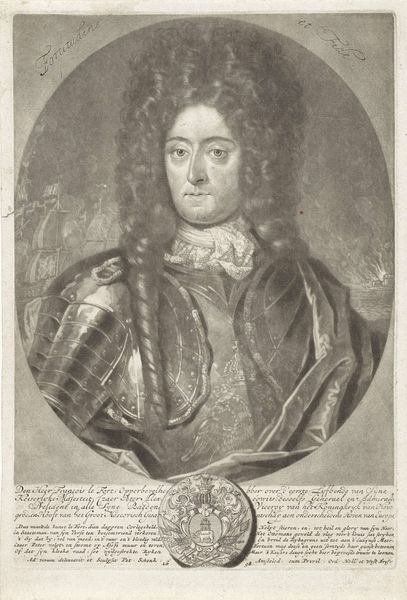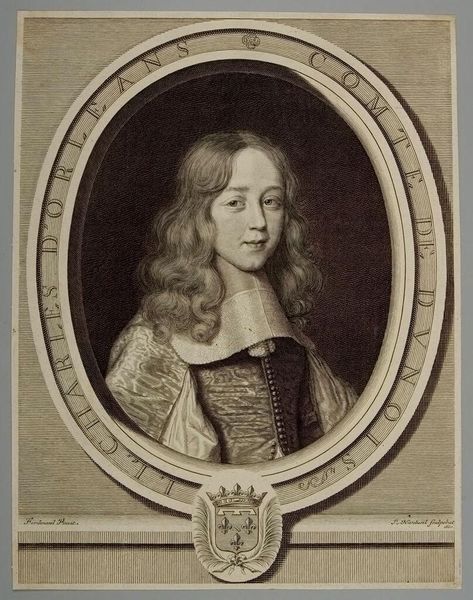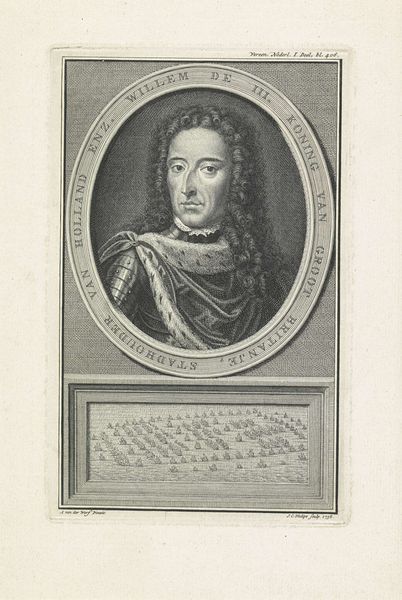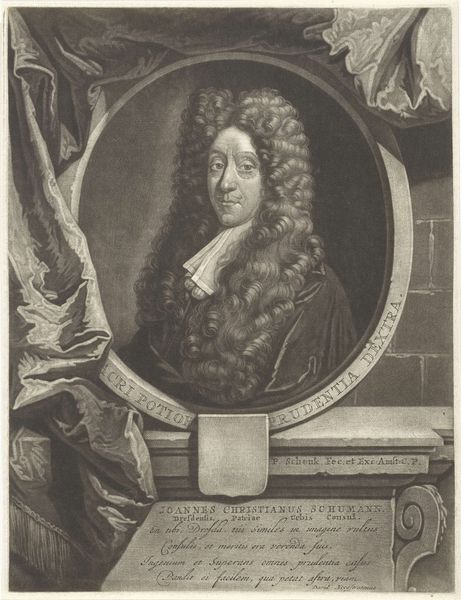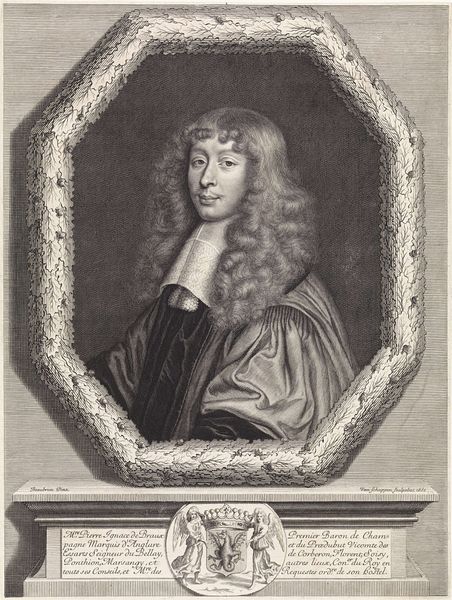
Portret van Willem III met een zwarte bediende aan zijn zijde 1668 - 1688
0:00
0:00
romeyndehooghe
Rijksmuseum
print, etching, engraving
#
portrait
#
baroque
# print
#
etching
#
history-painting
#
engraving
Dimensions: height 555 mm, width 440 mm
Copyright: Rijks Museum: Open Domain
This is Romeyn de Hooghe’s print of Willem III with a Black servant by his side, made sometime between 1645 and 1708. During this time, the Dutch Golden Age saw the Netherlands rise as a major economic and colonial power, enabled by the exploitation and enslavement of African people. Here, Willem III is portrayed in armour, a symbol of power, with a battle raging in the background, while a Black child stands behind him, holding his helmet. This juxtaposition speaks volumes about the relationship between power, race, and servitude during that time. The child's presence, while rendered with attention to detail, reduces him to a symbol of exoticism and subservience, reinforcing the racial hierarchies that were deeply embedded in Dutch society. It's a stark reminder of how the wealth and power of the Dutch Golden Age were built on the backs of enslaved people. It asks us to consider the human cost of empire and the ways in which these histories continue to shape our present.
Comments
No comments
Be the first to comment and join the conversation on the ultimate creative platform.
